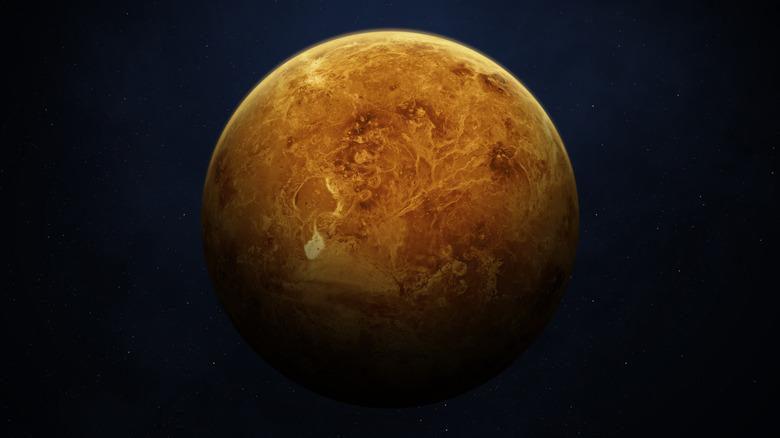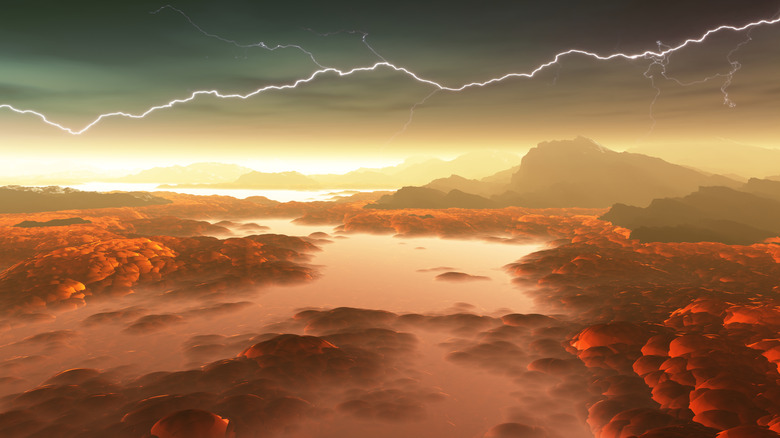The Terrifying Reasons Death On Venus Would Be Fast But Excruciating
The terrifying thing about death is the uncertainty. Science has some idea of what it feels like to die by various causes, and none of them are particularly pleasant. However, death would be much worse if it didn't happen on Earth. Death on any other planet would only take a matter of minutes, but even that short time would be horrific to endure, and arguably no planet would bring a more painful demise than Venus.
The climate on Venus is a vision of hell. The atmosphere is 93 times more dense than that of Earth. The surface pressure would be the same as standing 3,000 feet below the ocean on Earth. You wouldn't be able to inflate your lungs, but even if you could take a breath, the air is 96% carbon dioxide, which would cause you to suffocate. An increase of CO2 in the body also triggers a condition called hypercapnia, which causes intense confusion and paranoia, only heightening your suffering.
All this time, you're also burning alive. Venus is the second-hottest object in the solar system after the sun, with surface temperatures approaching 900 degrees Fahrenheit. The incredible pressure of the atmosphere would likely prevent your blood from boiling, but your flesh would be baked to a crisp. Venus is also shrouded in clouds composed of sulfuric acid, which dump showers of acid rain, but this actually wouldn't factor into your death because it's so hot, all the rain evaporates before reaching the surface. At least there's a silver lining.
Amazingly, Venus once had potential for life
Today, Venus is so inhospitable that even a machine cannot survive. Multiple probes have been sent to Venus, but the longest that any of them endured was the 1982 Soviet Venera 13 probe, which operated for just over two hours before the pressure and heat destroyed it. The most remarkable thing, however, is that despite these horrifying conditions, Venus may once have been a lot like Earth.
Venus is often called Earth's twin because of their similar sizes and cores, and it is also the planet that comes closest to Earth. Those similarities have helped to prompt speculation that Venus may once have been habitable, and it is thought that the desolate surface was once covered in oceans of liquid water. Unfortunately, this hospitable environment would not last.
In the early days of the solar system, the sun was not quite as hot and bright as it is now, meaning its habitable zone would have included the orbit of Venus. However, as the star got hotter, its habitable zone was pushed outward. The oceans of Venus evaporated, filling the air with water vapor and creating a catastrophic greenhouse effect that drove temperatures even higher. Solar radiation then destroyed all the water molecules, and without any form of carbon sink on the planet, massive amounts of CO2 rose from the crust and poisoned the air. We will likely never know if Venus ever harbored any lifeforms, but it seems certain that it never will now.

